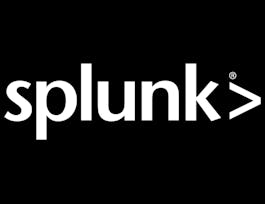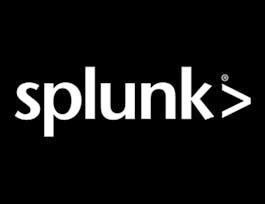This course helps you understand the basics of machine data. You will learn about Splunk components, its basic functions, and be introduced to apps, which becomes your workspace. It teaches you how to navigate Splunk, get you familiar with search anatomy to run searches using fields and basic commands.


Splunk Search Expert 101
This course is part of Splunk Search Expert Specialization
Taught in English
Some content may not be translated

Instructor: Splunk Instructor
7,846 already enrolled
Included with 
Course
(160 reviews)
What you'll learn
Investigate data using Splunk Search Processing Language (SPL) and create searches, reports, dashboards, and visualizations.
Utilize temporary and persistent fields in searches and enrich data with fields from other data sources.
Create, managed, and schedule reports and alerts to automate processes and respond to incidents as they occur.
Visualize data to create charts, graphs, and maps and use visual formatting commands to curate appearance.
Skills you'll gain
Details to know

Add to your LinkedIn profile
4 quizzes
Course
(160 reviews)
See how employees at top companies are mastering in-demand skills

Build your subject-matter expertise
- Learn new concepts from industry experts
- Gain a foundational understanding of a subject or tool
- Develop job-relevant skills with hands-on projects
- Earn a shareable career certificate


Earn a career certificate
Add this credential to your LinkedIn profile, resume, or CV
Share it on social media and in your performance review

There are 5 modules in this course
This eLearning module introduces students to what machine data is, and how Splunk can leverage operational intelligence to investigate and respond to incidents in their organizations.
What's included
3 videos2 readings
This eLearning module teaches students how to use Splunk to create reports and dashboards and explore events using Splunk's Search Processing Language. Students will learn the basics of Splunk's architecture, user roles, and how to navigate the Splunk Web interface to create robust searches, reports, visualizations, and dashboards..
What's included
8 videos2 readings1 quiz
This module is for users who want to learn about fields and how to use fields in searches. Topics will focus on explaining the role of fields in searches, field discovery, using fields in searches, and the difference between persistent and temporary fields. The last topic will introduce how fields from other data sources can be used to enrich search results.
What's included
5 videos3 readings1 quiz
This eLearning module teaches students how to use scheduled reports and alerts to automate processes in their organization. Students will create, manage, and schedule reports and alerts, and use alert actions to further respond to incidents as they occur.
What's included
6 videos3 readings1 quiz
This eLearning module teaches students how to create visualizations in Splunk, using Splunk's Search Processing Language as well as the Splunk Web interface. Students will learn commands that allow data to be displayed on charts and graphs, transform geographic data into maps, create single value visualizations, and use Splunk's visual formatting options to change the look of statistical tables.
What's included
5 videos2 readings1 quiz
Instructor

Offered by
Recommended if you're interested in Security

Splunk Inc.

Splunk Inc.

Splunk Inc.
Why people choose Coursera for their career




Learner reviews
Showing 3 of 160
160 reviews
- 5 stars
75.92%
- 4 stars
15.43%
- 3 stars
5.55%
- 2 stars
2.46%
- 1 star
0.61%
New to Security? Start here.

Open new doors with Coursera Plus
Unlimited access to 7,000+ world-class courses, hands-on projects, and job-ready certificate programs - all included in your subscription
Advance your career with an online degree
Earn a degree from world-class universities - 100% online
Join over 3,400 global companies that choose Coursera for Business
Upskill your employees to excel in the digital economy
Frequently asked questions
Access to lectures and assignments depends on your type of enrollment. If you take a course in audit mode, you will be able to see most course materials for free. To access graded assignments and to earn a Certificate, you will need to purchase the Certificate experience, during or after your audit. If you don't see the audit option:
The course may not offer an audit option. You can try a Free Trial instead, or apply for Financial Aid.
The course may offer 'Full Course, No Certificate' instead. This option lets you see all course materials, submit required assessments, and get a final grade. This also means that you will not be able to purchase a Certificate experience.
When you enroll in the course, you get access to all of the courses in the Specialization, and you earn a certificate when you complete the work. Your electronic Certificate will be added to your Accomplishments page - from there, you can print your Certificate or add it to your LinkedIn profile. If you only want to read and view the course content, you can audit the course for free.
If you subscribed, you get a 7-day free trial during which you can cancel at no penalty. After that, we don’t give refunds, but you can cancel your subscription at any time. See our full refund policy.


